Discover the reasons behind a poorly flushing toilet and learn practical solutions to restore its…
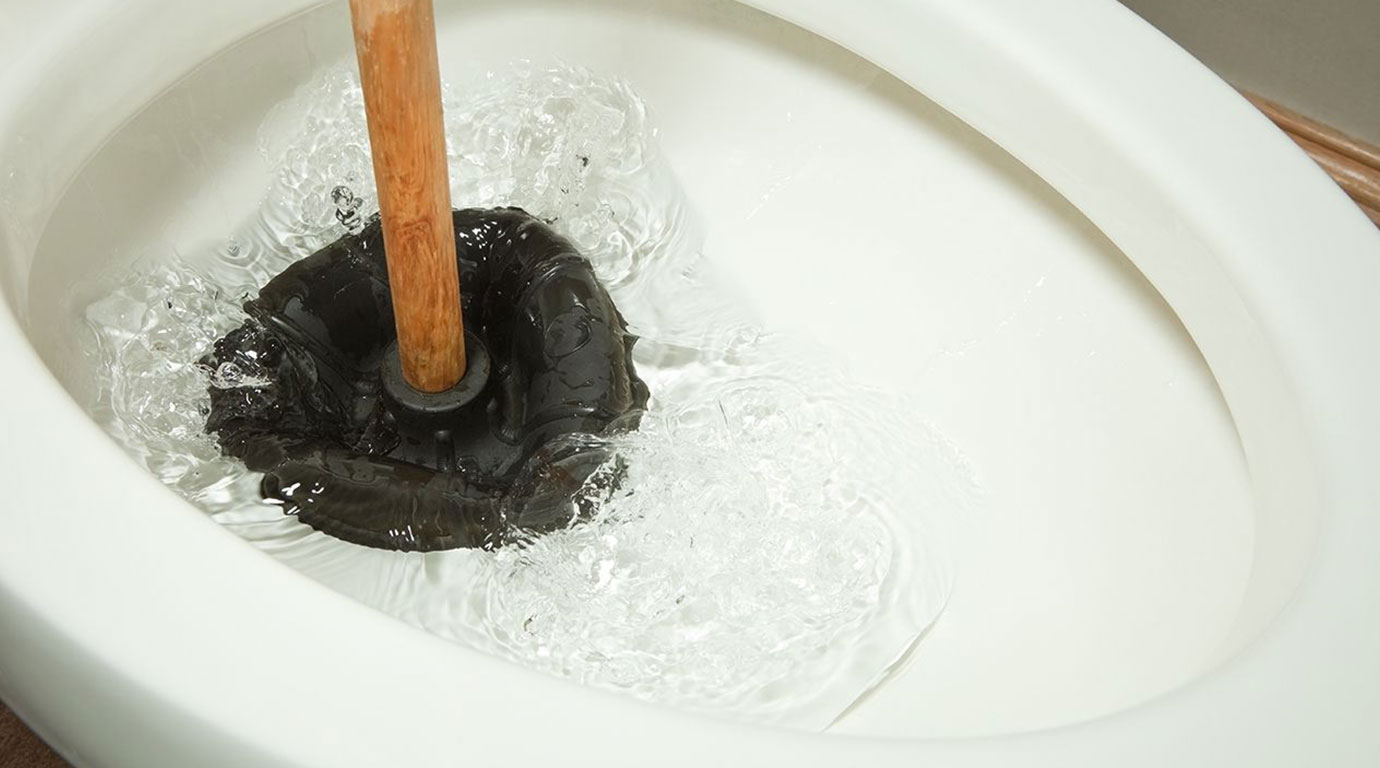
Why Does My Toilet Keep Getting Blocked?
As an Australian homeowner, dealing with a constantly blocked toilet can be a frustrating and unpleasant experience. If you find yourself repeatedly asking, “Why does my toilet keep getting blocked?” you’re not alone. In this comprehensive guide, we’ll explore the common causes of toilet blockages and provide you with practical solutions to address them. Let’s dive in and learn more!
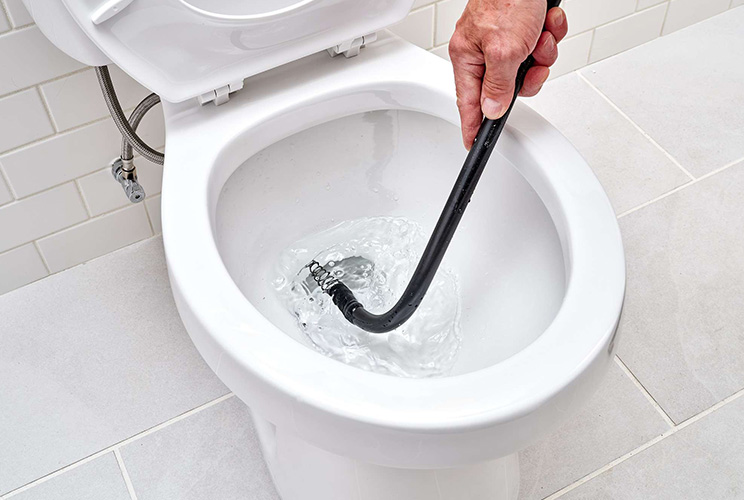
Victorians who are having trouble with their toilet should hire a professional plumber, the state plumbing regulator warns. – VBA
Understanding the Causes of Toilet Blockages
To effectively tackle the issue of a persistently blocked toilet, it’s important to understand the potential causes. Here are some common culprits that could be behind the recurring blockages:
Flushing Non-Flushable Items
One of the primary reasons toilets get blocked is the improper disposal of non-flushable items. Flushing items such as wipes, sanitary products, or excessive amounts of toilet paper can lead to clogs in the drainage system. These items do not break down easily and can accumulate, obstructing the flow of water and causing repeated blockages.
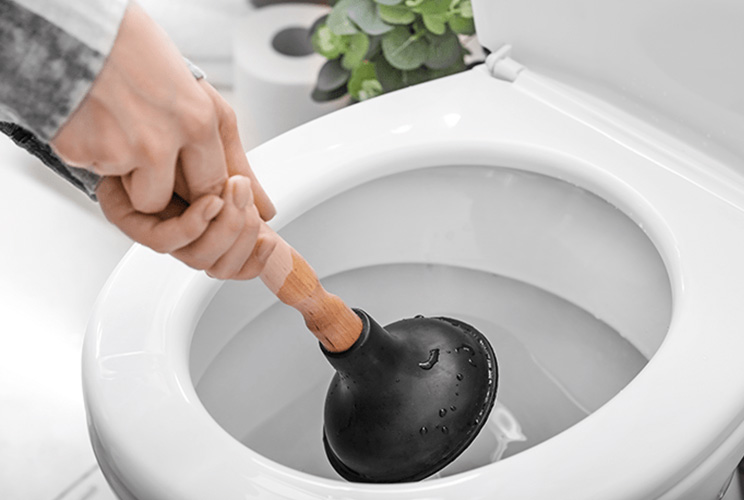
Hard Water Deposits
In areas with hard water, mineral deposits can accumulate inside the toilet pipes over time. These deposits, commonly known as limescale, can build up and narrow the passage for water to flow. As a result, the toilet becomes more prone to blockages.
Low-Flow Toilet Systems
While low-flow toilets are designed to conserve water, they may be more susceptible to blockages due to their reduced water volume and flushing power. If the toilet has a weak flush, it may not effectively clear the waste, leading to blockages.
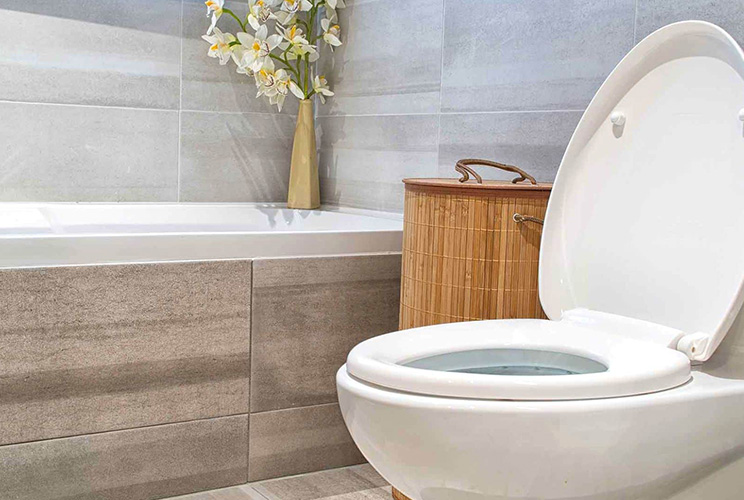
Faulty Toilet Design or Installation
In some cases, the issue may be related to the toilet itself. A poorly designed or improperly installed toilet can create plumbing problems, including frequent blockages. Issues such as a misaligned trap or a malfunctioning flush mechanism can contribute to repeated clogging.
Effective Solutions to Address Toilet Blockages
Now that we understand the potential causes, let’s explore effective solutions to address the problem of a continually blocked toilet and restore a smoothly functioning bathroom environment.
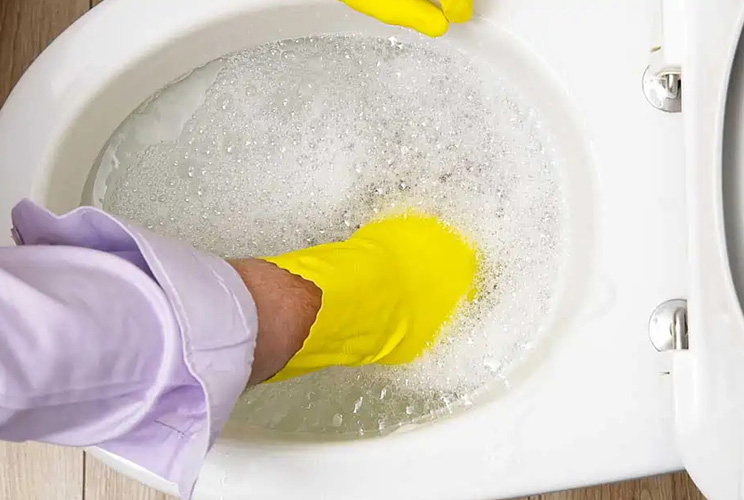
Proper Waste Disposal
To prevent blockages, it’s crucial to practice proper waste disposal habits. Remember the following tips:
- Only flush toilet paper and human waste down the toilet.
- Avoid flushing non-flushable items like wipes, sanitary products, or excessive amounts of toilet paper. Dispose of these items in a proper waste bin.
- Educate household members about what can and cannot be flushed.
Regular Maintenance and Cleaning
Regular maintenance and cleaning can help prevent blockages. Here are some steps you can take:
- Perform regular inspections and cleaning of the toilet bowl, including removing any visible debris or buildup.
- Use a toilet brush or a mild cleaning solution to scrub the inside of the toilet bowl regularly.
- Consider using a toilet descaler or cleaner to remove limescale deposits that can contribute to blockages.
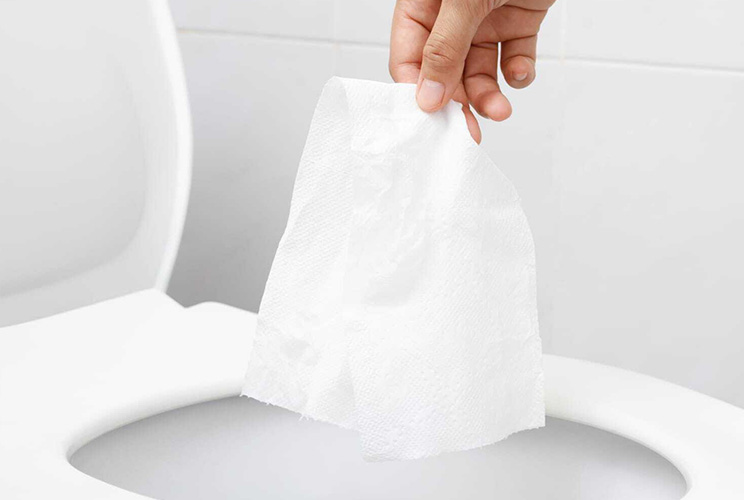
Upgrading to a High-Efficiency Toilet
If you have an older toilet model or a low-flow toilet that frequently gets blocked, it may be worth considering upgrading to a high-efficiency toilet. These modern toilets are designed to provide powerful flushes while using less water, reducing the risk of blockages.
Related: How to Replace a Toilet
DIY plumbing installations pose a significant health risk to the immediate household and adjoining properties – Victorian Small Business Commissioner
Seeking Professional Help
If your toilet continues to get blocked despite taking preventive measures, it’s advisable to seek the assistance of a professional plumber. A licensed plumber will have the expertise and tools to diagnose and address more complex issues that may be causing the recurring blockages. They can perform a thorough inspection, identify any underlying problems, and recommend appropriate solutions.
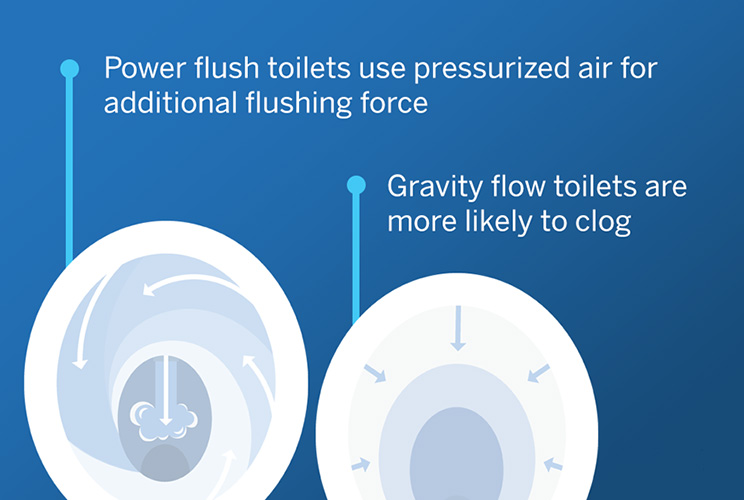
Prevention Tips for Long-Term Maintenance
Prevention is key to maintaining a healthy and blockage-free toilet system. Here are some tips to minimise the chances of encountering frequent blockages in the future:
- Follow proper waste disposal practices, as mentioned earlier.
- Install a drain strainer or hair catcher in the shower and bathroom sinks to prevent hair and debris from entering the drainage system.
- Consider using a water softener if you have hard water to minimise the buildup of limescale deposits.
- Schedule regular plumbing inspections and maintenance to catch any potential issues early on and prevent them from escalating.
Potential Issues in the Sewer Network
While the causes of toilet blockages mentioned earlier primarily focus on individual toilets and their immediate surroundings, it’s important to consider the possibility of issues within the broader sewer network. Problems in the sewer system can contribute to recurring blockages in multiple toilets within a property. Below is an example of a Sydney Wastewater System.
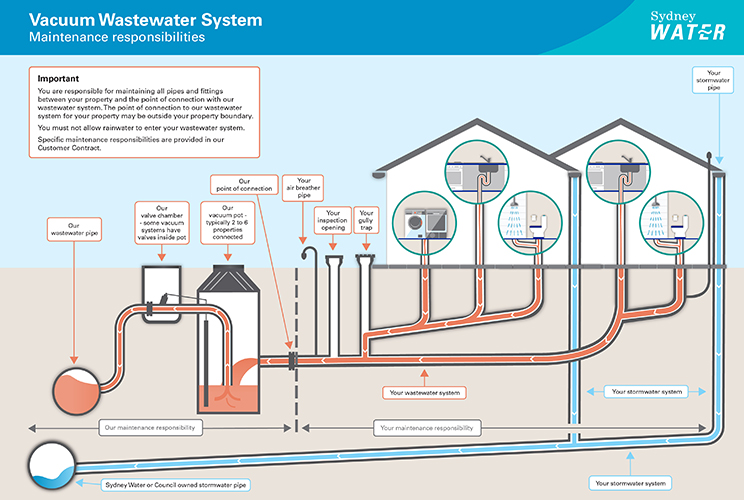
Here are some potential issues to be aware of:
Tree Root Intrusion
In older neighborhoods, tree roots can intrude into sewer pipes through small cracks or joints. As the roots grow, they can cause significant damage to the pipes, leading to blockages and even pipe collapses. If you have large trees near your property, it’s possible that tree roots have infiltrated the sewer pipes, resulting in recurrent toilet blockages.
Sewer Line Clogs
Clogs or obstructions in the main sewer line that connects your property to the municipal sewer system can also cause repeated toilet blockages. These clogs can occur due to a variety of reasons, such as the accumulation of grease, debris, or foreign objects in the sewer line. If the blockage is severe or located outside your property, it can affect multiple toilets and drains in your home.
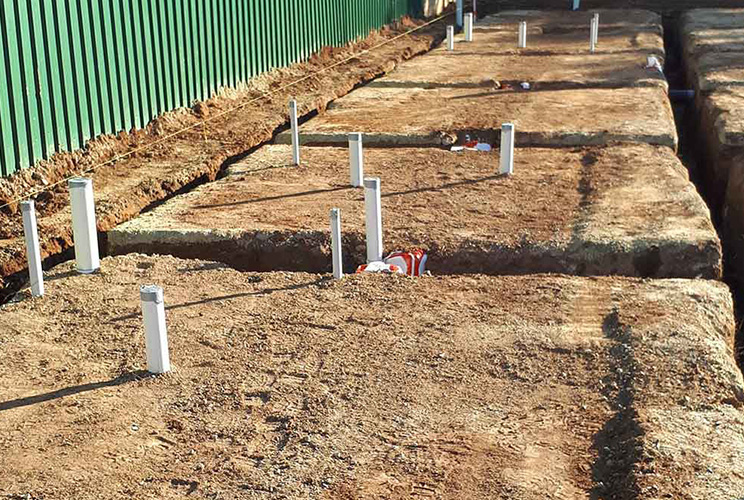
Sewer Line Damage or Corrosion
Over time, sewer pipes can deteriorate, corrode, or develop cracks, particularly in older properties. This deterioration can lead to blockages as well as leaks that attract tree roots or allow soil and debris to enter the pipes. If you suspect that the recurring toilet blockages are due to damaged or corroded sewer pipes, it’s crucial to seek professional help to assess and repair the issue.
Sewer Line Capacity Issues
In some cases, the sewer line serving your property may be undersized or overwhelmed by the volume of wastewater being discharged. This can lead to blockages and backups, especially during periods of heavy water usage or in areas with inadequate sewer infrastructure, which can also cause sewer spills. If you experience recurring toilet blockages along with slow drainage in sinks and showers, it’s worth considering the possibility of sewer line capacity issues.
Dealing with Sewer Network Issues
Addressing sewer network issues requires specialised knowledge and equipment, making it essential to involve a professional plumber or sewer specialist. Here are some steps to take if you suspect issues in the sewer network:
- Contact a licensed plumber: Explain the recurring toilet blockages and mention your suspicion of sewer network problems. A professional plumber can assess the situation and determine the most appropriate course of action.
- Sewer camera inspection: A plumber may recommend a sewer camera inspection to identify the exact location and nature of the problem within the sewer line. This involves inserting a small camera into the pipes to visually inspect their condition and identify any blockages, damages, or intrusions.
- Pipe repairs or replacements: Depending on the findings of the sewer camera inspection, the plumber may suggest various repair or replacement options. This could involve removing tree roots, clearing blockages, relining damaged pipes, or replacing sections of the sewer line.
- Regular maintenance: Once any issues in the sewer network are resolved, it’s crucial to establish a regular maintenance schedule. This can include periodic inspections, cleaning, and preventive measures to minimise the chances of future blockages and maintain the health of your sewer system.
Remember, sewer network issues can be complex and may require professional expertise. It’s always advisable to consult with a licensed plumber or sewer specialist to accurately diagnose and address any problems within the sewer infrastructure.
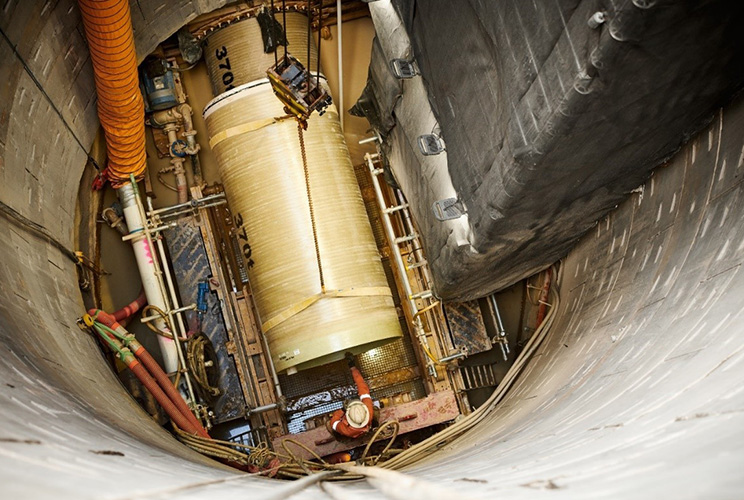
When to Seek Professional Help
While some toilet blockages can be resolved through DIY methods, certain situations may require the expertise of a professional plumber. Here are instances when it’s best to seek professional help:
- Persistent blockages that continue to occur despite attempting basic troubleshooting steps.
- Complex plumbing system problems involving multiple fixtures or extensive repairs.
- Lack of experience or confidence in handling plumbing repairs.
- Time constraints or the need for convenience, as professional plumbers can efficiently diagnose and resolve the issue while you focus on other responsibilities.
Remember, when it comes to plumbing problems, it’s better to address them sooner rather than later to prevent further damage and costly repairs.
Why Should You Seek Professional Help
Experiencing a toilet that keeps getting blocked can be a frustrating and inconvenient issue for Australian homeowners. By understanding the potential causes and implementing the effective solutions provided in this guide, you’ll be well-equipped to address these issues and maintain a smoothly functioning toilet system.
Remember, if you’re unsure about performing any repairs or if the problem persists, don’t hesitate to seek the assistance of a professional plumber. They have the expertise and tools to diagnose and resolve complex plumbing issues effectively.
By following proper waste disposal practices, practicing regular maintenance and cleaning, and considering necessary upgrades, you can minimise the occurrence of toilet blockages and enjoy a trouble-free bathroom experience.
This blog post only contains general information and suggestions. For specific plumbing issues, it is always recommended to consult a professional plumber.
If you need a new toilet, hire a plumber so you can be sure the job will be done right, because there is a high risk of sewage contaminating the drinking water supply if an installation is non-compliant – VSBC

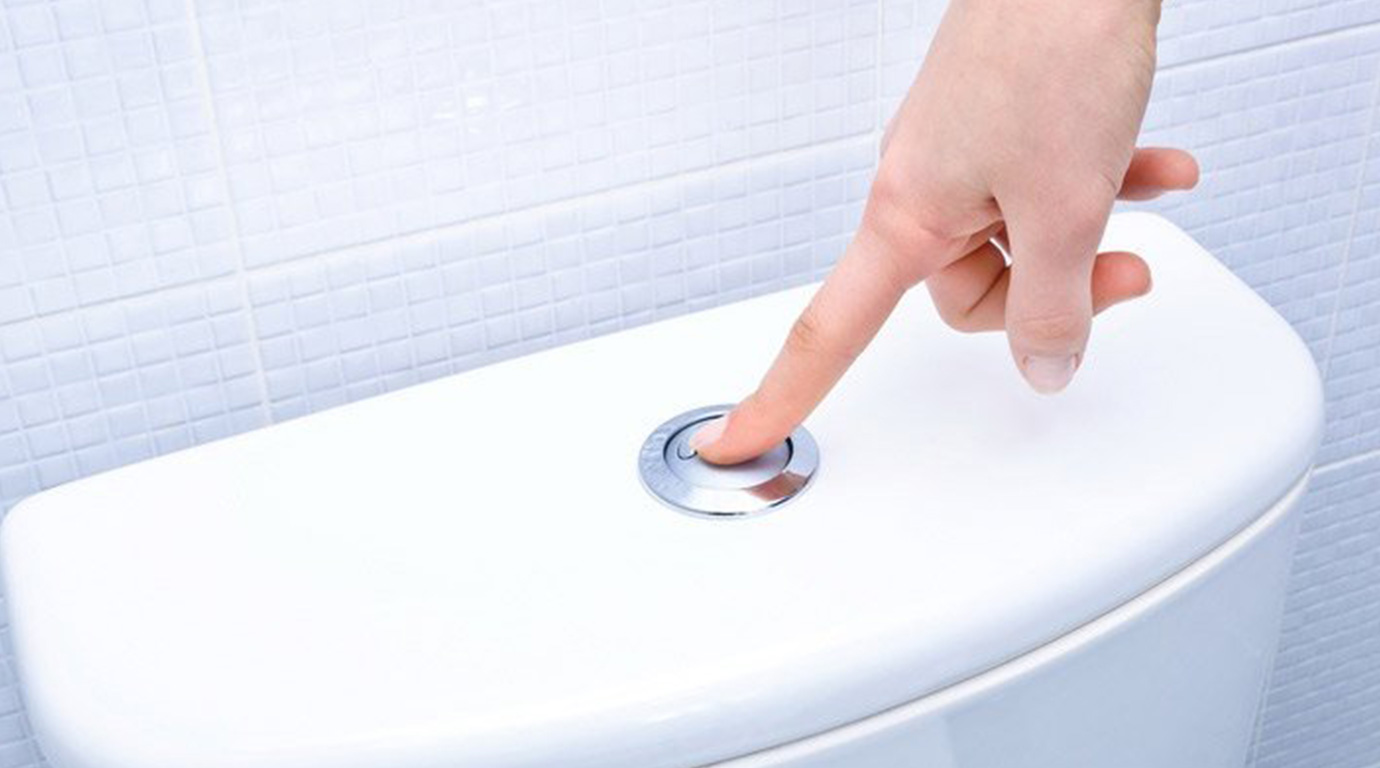
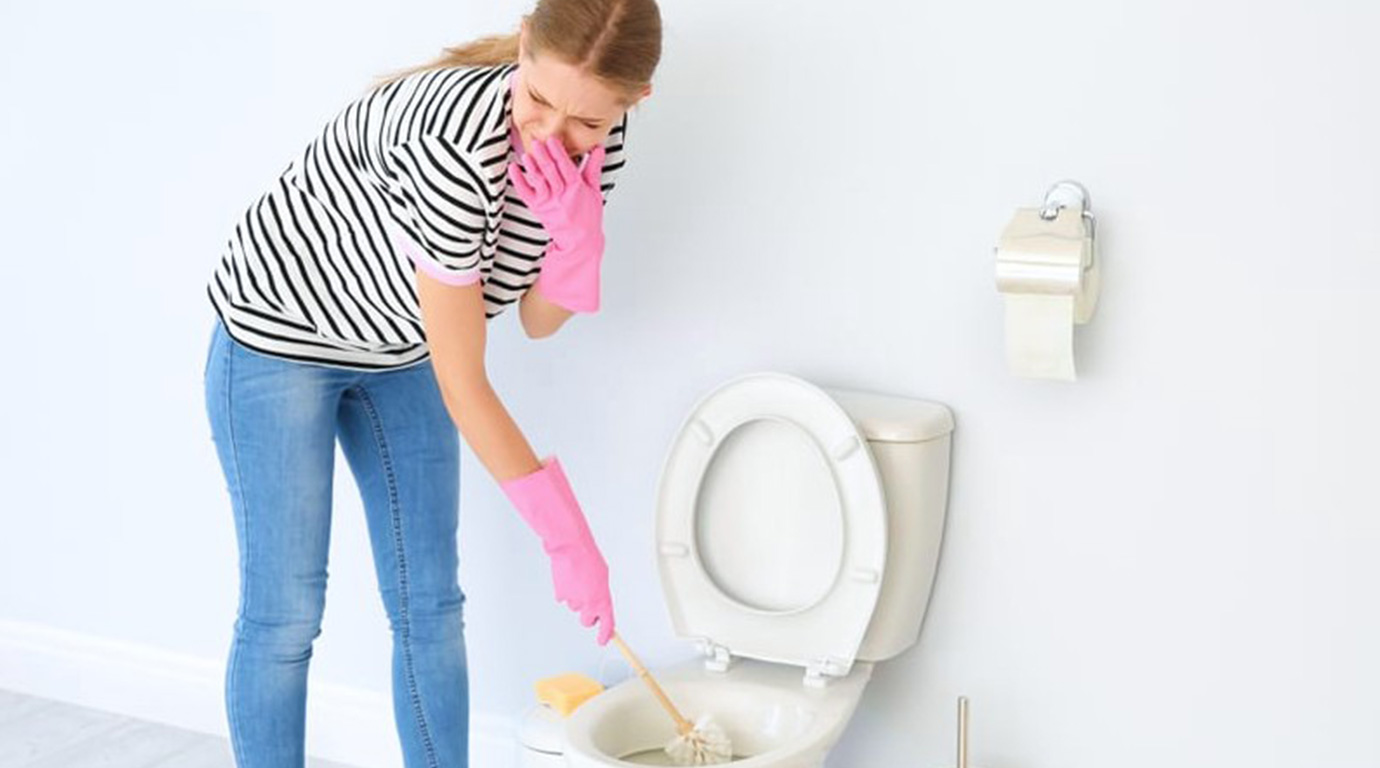
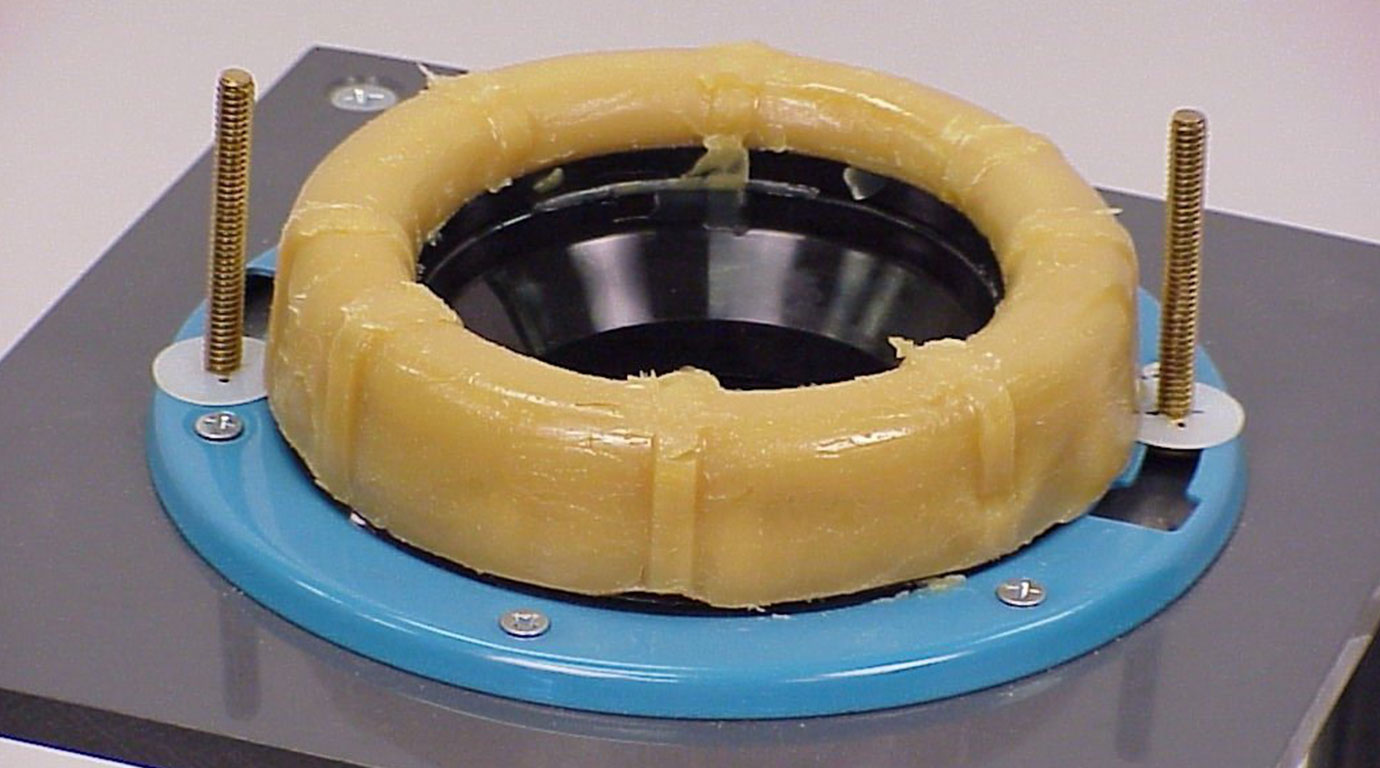
This Post Has 0 Comments